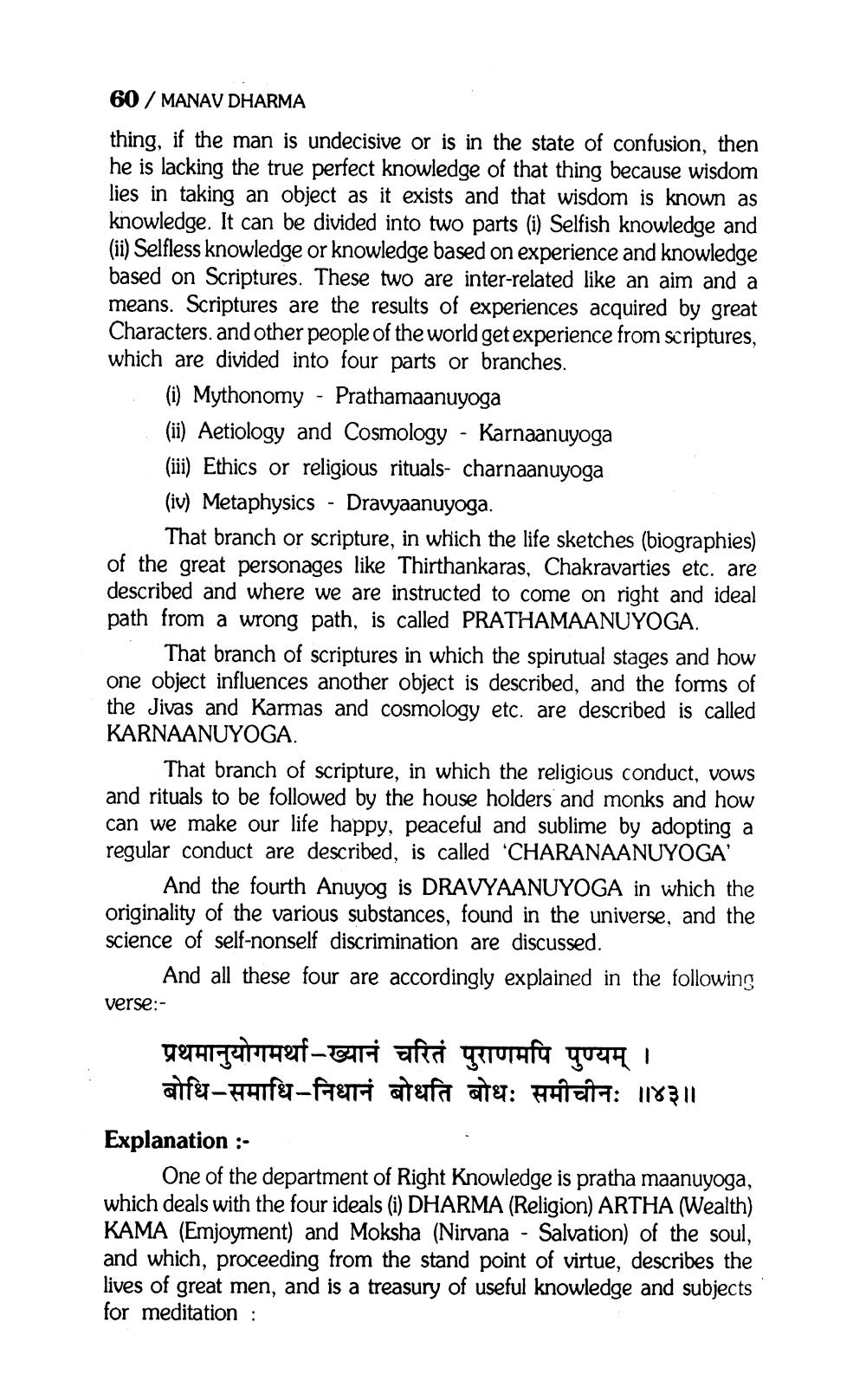________________
60 / MANAV DHARMA
thing, if the man is undecisive or is in the state of confusion, then he is lacking the true perfect knowledge of that thing because wisdom lies in taking an object as it exists and that wisdom is known as knowledge. It can be divided into two parts (i) Selfish knowledge and (ii) Selfless knowledge or knowledge based on experience and knowledge based on Scriptures. These two are inter-related like an aim and a means. Scriptures are the results of experiences acquired by great Characters, and other people of the world get experience from scriptures, which are divided into four parts or branches.
(i) Mythonomy - Prathamaanuyoga (ii) Aetiology and Cosmology - Karnaanuyoga (iii) Ethics or religious rituals- charnaanuyoga (iv) Metaphysics - Dravyaanuyoga.
That branch or scripture, in which the life sketches (biographies) of the great personages like Thirthankaras, Chakravarties etc. are described and where we are instructed to come on right and ideal path from a wrong path, is called PRATHAMAANUYOGA.
That branch of scriptures in which the spirutual stages and how one object influences another object is described, and the forms of the Jivas and Karmas and cosmology etc. are described is called KARNAANUYOGA.
That branch of scripture, in which the religious conduct, vows and rituals to be followed by the house holders and monks and how can we make our life happy, peaceful and sublime by adopting a regular conduct are described, is called 'CHARANAANUYOGA'
And the fourth Anuyog is DRAVYAANUYOGA in which the originality of the various substances, found in the universe, and the science of self-nonself discrimination are discussed.
And all these four are accordingly explained in the following verse:
प्रथमानुयोगमा-ख्यानं चरितं पुराणमपि पुण्यम् । बोधि-समाधि-निधानं बोधति बोधः समीचीनः ॥४३॥
Explanation :
One of the department of Right Knowledge is pratha maanuyoga, which deals with the four ideals (i) DHARMA (Religion) ARTHA (Wealth) KAMA (Emjoyment) and Moksha (Nirvana - Salvation) of the soul, and which, proceeding from the stand point of virtue, describes the lives of great men, and is a treasury of useful knowledge and subjects for meditation :




